
Possessive pronouns
 المؤلف:
EVELYNP.ALTENBERG & ROBERTM.VAGO
المؤلف:
EVELYNP.ALTENBERG & ROBERTM.VAGO
 المصدر:
English Grammar Understanding the basics
المصدر:
English Grammar Understanding the basics
 الجزء والصفحة:
P89-C4
الجزء والصفحة:
P89-C4
 2025-11-07
2025-11-07
 16
16
Possessive pronouns
You won’t be surprised to learn that possessive pronouns are pronouns that indicate possession, or ownership. Some possessive pronouns are underlined here:
1. Mr. Smith explained his ideas to the audience.
2. I wish I could accept their invitation.
3. That suitcase isn’t mine.
4. Yours was the best essay in the class.
If you look closely, you’ll notice that the possessive pronouns in sentences 1-4 fall into two groups. The ones in sentences 1 and 2 are followed by a noun: his ideas, their invitation. The ones in sentences 3 and 4 are not followed by a noun; rather, they stand on their own in the sentence. We’ll talk about each kind separately.
The possessive pronouns in sentences 1 and 2 may look familiar to you. As part of our discussion of determiners. Like articles (a, an, the), possessive pronouns which function as determiners can occur in the slot ______ house (for example, his house, our house, your house). Since they function as determiners, you can understand why they are followed by a noun. We called these determiner possessive pronouns and provided the full list. We repeat them here: my, your, his, her, its, our, their.
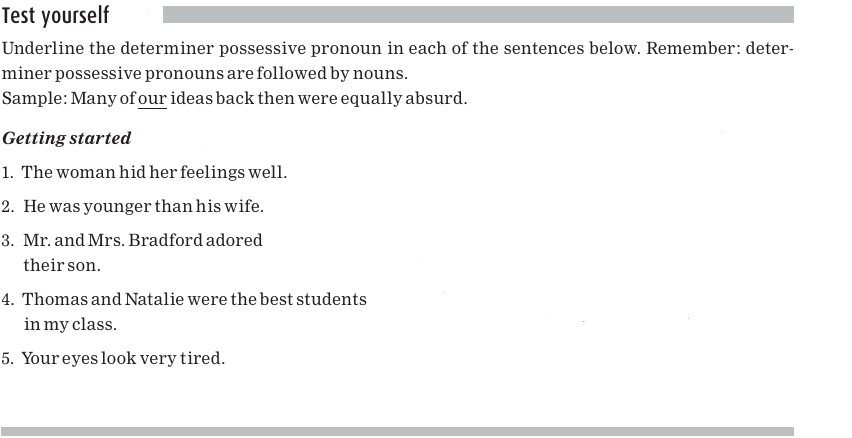
Answers

Now on to the possessive pronouns in sentences 3 and 4, the kind that can stand alone in a sentence. Here are some more examples:
5. The Greens’ tent came loose in the storm but ours remained secure.
6. Yours was the first card I noticed.
7. The scientist hurried from that laboratory to mine.
These possessive pronouns replace a whole noun (actually, a whole noun phrase, but we haven’t gotten to that yet). And since the word nominal means ‘‘noun-like,’’ these pronouns are sometimes called possessive pronouns with nominal function. We will simply call them nominal possessive pronouns.
Quick tip
Nominal possessive pronouns replace a whole noun (or noun phrase). For example, instead of saying That book is Sally’s book we can simply say, That book hers. The nominal possessive pronouns are: mine, yours, his, hers, its, ours, theirs.
Notice that the pronouns his and its can function either as determiner possessive pro nouns or as nominal possessive pronouns.
To enhance your understanding
Don’t confuse possessive pronouns with contracted pronouns:
8a. It’s (= it is) a wonderful day. (contracted pronoun)
8b. Its positives outweigh its negatives. (determiner possessive pronoun)
9a. You’re (= you are) absolutely right. (contracted pronoun)
9b. Your shoelaces are untied. (determiner possessive pronoun)
10a. They’re (= they are) leaving. (contracted pronoun)
10b. Their leaving early was unexpected. (determiner possessive pronoun)
As you can see, the contracted pronoun is always written with an apostrophe.
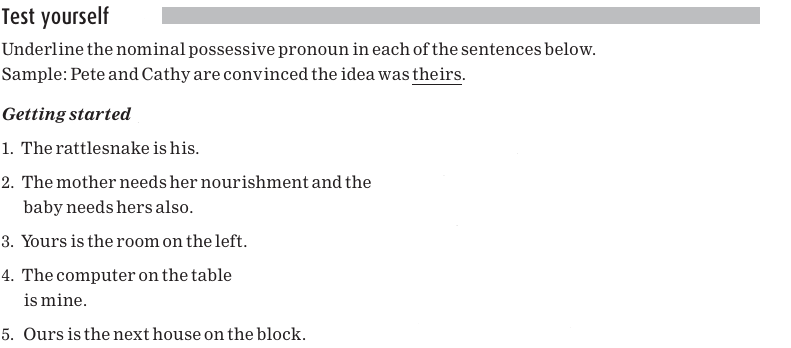
Answers

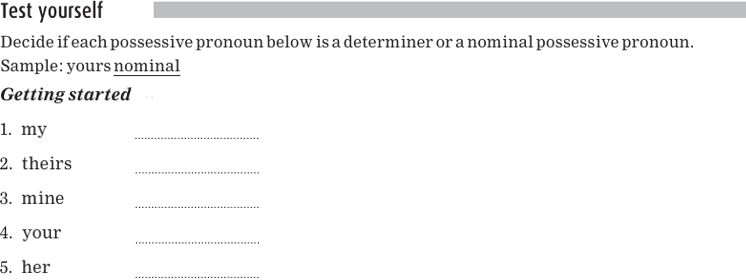
Answers

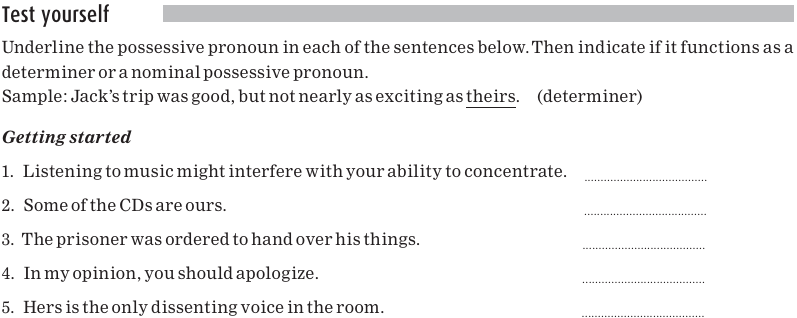
Answers

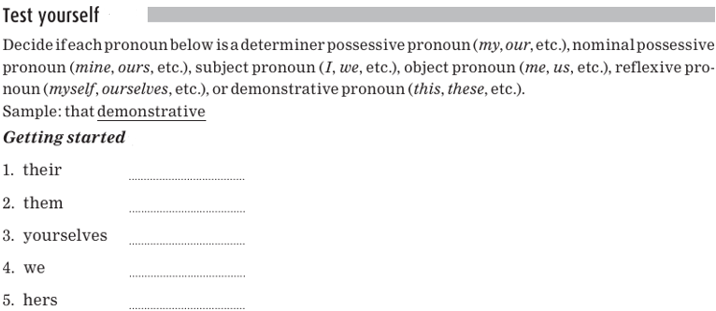
Answers

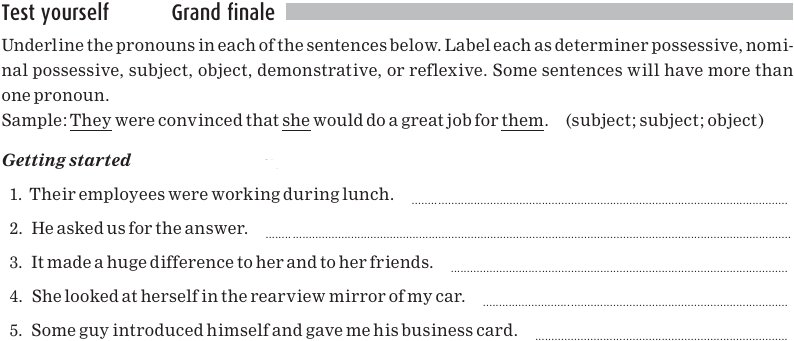
Answers
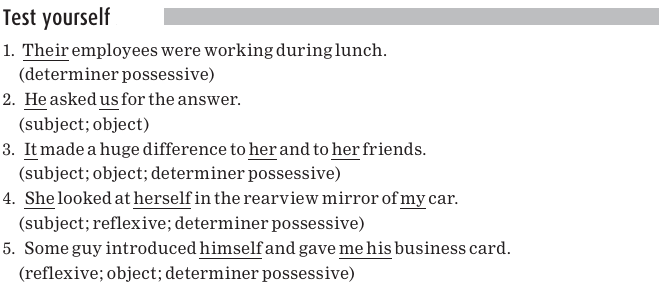
 الاكثر قراءة في Possessive pronoun
الاكثر قراءة في Possessive pronoun
 اخر الاخبار
اخر الاخبار
اخبار العتبة العباسية المقدسة


